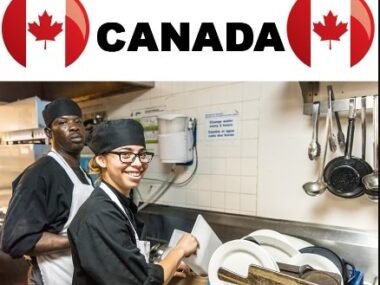Among the many industries that drive the Australian economy, meat processing jobs in Australia are one of the most significant sectors, offering diverse opportunities for skilled workers, particularly in regional areas.
Australia has long been a popular destination for individuals seeking job opportunities abroad. For foreign workers interested in pursuing meat processing jobs in Australia, the visa sponsorship program offers a valuable pathway to gaining employment and permanent residency.
Understanding Meat Processing Jobs in Australia
Meat processing in Australia refers to the preparation and manufacturing of meat products, including beef, lamb, poultry, pork, and other meats. The industry is a major contributor to Australia’s export economy and provides numerous job opportunities. Meat processors are responsible for slaughtering animals, cutting and packaging meat, and preparing the products for distribution.
The meat processing industry in Australia is highly advanced, with modern facilities equipped with state-of-the-art technology to ensure food safety, quality control, and sustainability. This sector requires a diverse range of workers, including skilled laborers, factory workers, machine operators, quality control inspectors, and management personnel.
Types of Meat Processing Jobs in Australia
The meat processing industry in Australia offers a wide variety of job roles, suitable for both experienced professionals and those entering the workforce for the first time. Here are some of the key job positions available within the industry:
1. Butchers
Butchers play a critical role in the meat processing industry by preparing cuts of meat for sale. They work with a range of tools and machines to ensure high-quality meat products, from basic cuts to specialized products.
2. Meat Inspectors
Meat inspectors are responsible for ensuring that meat products meet health and safety standards. They inspect meat at various stages of processing and ensure that it is fit for human consumption.
3. Production Workers
Production workers in the meat processing industry perform various tasks, including assisting with slaughtering, packaging, and handling meat. These jobs are typically labor-intensive but essential for the smooth operation of meat processing plants.
4. Quality Control Officers
Quality control officers monitor the quality of meat products at every stage of processing, ensuring that they meet strict safety and quality standards. They are essential in preventing contamination and ensuring that products are safe for consumers.
5. Machine Operators
Machine operators work with specialized equipment that is used in meat processing, such as slicing machines, grinders, and packaging equipment. These roles often require technical skills and experience.
6. Supervisory and Management Roles
For those with advanced experience, there are supervisory and management positions available in the meat processing industry. These roles involve overseeing operations, ensuring compliance with regulations, and managing staff.
How to Secure Meat Processing Jobs in Australia with Visa Sponsorship
Foreign workers interested in meat processing jobs in Australia can benefit from visa sponsorship, which allows them to work legally in the country. The process of obtaining a visa sponsorship typically involves several steps:
1. Find a Sponsoring Employer
The first step to securing a visa sponsorship for meat processing jobs in Australia is finding an employer who is willing to sponsor you. Many meat processing companies in Australia are actively seeking foreign workers to fill positions in areas where there is a shortage of skilled labor.
These companies can offer sponsorship through the Temporary Skill Shortage (TSS) visa or other relevant visa pathways. To find sponsoring employers, you can search online job boards, recruitment agencies, and company websites. Some of the leading meat processing companies in Australia include JBS Australia, Teys Australia, and Australian Country Choice.
2. Check Visa Requirements
Once you have secured a job offer from a sponsoring employer, you must meet the visa requirements set by the Australian government. The most common visa for meat processing jobs is the Temporary Skill Shortage (TSS) visa (subclass 482), which allows skilled workers to live and work in Australia for up to four years.
The TSS visa requires that the position you are applying for is listed on Australia’s Skilled Occupation List, which includes many roles within the meat processing industry. Additionally, you must meet the following requirements:
- A valid job offer from an approved sponsor
- Relevant work experience or qualifications for the job
- Proficiency in English (if required)
3. Apply for the Visa
Once you’ve met the eligibility criteria, you can apply for the visa online through the Australian Department of Home Affairs website. You will need to provide supporting documentation, such as your passport, job offer letter, proof of qualifications, and proof of English language proficiency.
If your application is approved, you will receive a visa that allows you to live and work in Australia for the specified period. In some cases, your employer may also help with your visa application process.
4. Explore Pathways to Permanent Residency
One of the significant advantages of working in meat processing jobs in Australia is the potential pathway to permanent residency.
If you work in the meat processing industry for a certain period, you may be eligible to apply for permanent residency through programs like the Skilled Independent Visa (subclass 189) or the Employer Nomination Scheme (subclass 186).
These pathways are highly sought after and can provide long-term stability and benefits, including the ability to sponsor family members to join you in Australia.
Salary Expectations of the Job
The salary for meat processing jobs in Australia varies depending on the position, location, and level of experience. However, the industry is known for offering competitive wages, especially for skilled workers. Here is a breakdown of estimated salary ranges for various positions in the meat processing industry:
- Butchers: AU$50,000 – AU$70,000 per year
- Meat Inspectors: AU$60,000 – AU$80,000 per year
- Production Workers: AU$45,000 – AU$55,000 per year
- Quality Control Officers: AU$60,000 – AU$75,000 per year
- Machine Operators: AU$50,000 – AU$65,000 per year
- Supervisory/Management Roles: AU$ 80,000 – AU$120,000 per year
Salaries may vary depending on location, with rural areas often offering higher wages to attract workers. Additionally, many employers offer benefits such as accommodation assistance, health insurance, and performance-based bonuses.
How to Apply for Meat Processing Jobs in Australia
To apply for meat processing jobs in Australia with visa sponsorship, follow these steps:
1. Search for Job Listings
Look for meat processing job listings on online job boards such as Seek, Indeed, or LinkedIn. You can also visit the websites of major meat processing companies to find current job openings.
2. Prepare Your Resume and Cover Letter
Ensure your resume highlights your relevant experience in the meat processing industry, including any certifications or training you have received. Write a tailored cover letter that outlines your skills, experience, and motivation to work in Australia.
3. Submit Your Application
Once you’ve identified job opportunities, submit your application to the employer. Ensure you follow all application instructions and include the necessary supporting documents.
4. Follow Up
After submitting your application, follow up with the employer to ensure they received your materials. If you are shortlisted for an interview, be prepared to discuss your qualifications, experience, and interest in working in Australia.
Conclusion
Meat processing jobs in Australia offer excellent opportunities for foreign workers seeking visa sponsorship and long-term career growth. With a booming industry that is always in need of skilled workers, the meat processing sector presents a pathway to both temporary work and permanent residency in Australia.
By understanding the visa sponsorship process, job roles, and salary expectations, you can successfully navigate your way into the Australian workforce. If you’re ready to take the next step, start your job search today and explore the opportunities available to you in Australia’s thriving meat processing industry!






